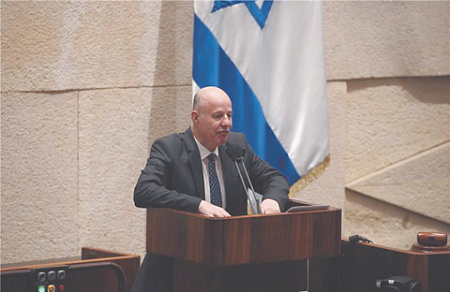
Azerbaijan hosted the first technical meeting between Israel and Turkey on the creation of a deconfliction mechanism on Syria. The meeting took place after the Jewish state bombed airfields last week, which Ankara would like to take control of. The government of Benjamin Netanyahu does not want Turkish bases to interfere with the freedom of its aviation. According to NG, the Israeli side would be quite satisfied if Ankara remained within the zone of influence that it has formed in the northern regions of Syria.
On April 10, Netanyahu’s office informed that bilateral consultations had taken place between Israel and Turkey.
His office reported that a delegation led by the head of the Israeli National Security Council, Tzachi Hanegbi, as well as representatives of the Ministry of Defense and law enforcement agencies visited Baku to hold talks with their Turkish counterparts.
“Israel thanks Azerbaijan and President Ilham Aliyev for organizing important negotiations, during which the parties outlined their interests in the region and agreed to continue dialogue to maintain security stability,” the Israeli Prime Minister’s office said in a statement.
According to sources of a number of publications, the countries tried to coordinate the launch of a deconfliction mechanism on Syria, according to the model that used to be between Russia and Israel. “Israel has made it clear that any change in the deployment of foreign troops in Syria, in particular the establishment of Turkish bases in the Palmyra area, is a red line and will be considered a blow to trust,” a source told Yediot Ahronot. “Israel has made it clear in the past that preventing such threats is the responsibility of the government in Damascus.” According to him, any actions that endanger the Jewish state “will become a threat to the rule” of Syrian transitional President Ahmed al-Sharaa.
Earlier, regional media reported that Turkey had received permission from the transitional administration in Damascus to take control of the Tiyas (T-4) base in the central province of Homs. The airfield in the Palmyra area was also discussed separately. According to sources in The Middle East Eye, Turkish-made shock weapons and air defense systems were to be installed at military facilities. Yediot Ahronot sources in the Israeli security forces believe that Turkish bases in Central Syria threaten the freedom of operations of the Israeli Air Force. Before the fall of Bashar al-Assad’s regime on December 8, 2024, forces close to Iran controlled much of the infrastructure in the area.
According to NG, Israel would be quite satisfied if Turkey remained within its traditional zone of influence – in the northern regions of Syria, which are adjacent to the Turkish borders. Options with the deployment of Ankara’s bases in the south and in the center of the republic are excluded.
Yesterday, in an interview with CNN Turk, Turkish Foreign Minister Hakan Fidan said that Syria can overcome all its problems, including in the field of defense, with Turkey’s help. He explained: “First of all, we have the intention, then the opportunity, and finally we have the vision.” The minister added that Turkey would not “openly attack any country that does not attack itself.” “However, if in a neighboring country (Syria. – “NG”) there will be instability that can harm us, we cannot remain passive. We will take steps, but we will start with diplomatic ones,” Fidan pointed out. “We do not intend to enter into conflict with any country on Syrian territory, not only with Israel.”
The risk of conflict with Turkey is not the only threat currently facing the Israel Defense Forces (IDF) in Syria. Israeli media claim that anti-Israeli sentiments are growing in the southern regions of the republic, which have been occupied by the IDF since December 8. According to these reports, local residents are mobilizing to resist the Israeli military. In recent weeks, tensions between Southerners and the forces of the Jewish State in the buffer zone have increased significantly. Last week, the largest clash between the IDF and the Syrian population took place in the city of Nava. This happened after local clerics publicly called on Southerners to enter into a confrontation with the Israelis.
Anton Mardasov, an expert on the Middle East, told NG that Netanyahu is sensitive to the mood in the US presidential administration and understands when it is possible to act contrary to Washington’s interests and when it is better not to. “Therefore, of course, Donald Trump’s position and his publicly positive comments about Erdogan and Turkey at the meeting with Netanyahu played a role: the Israeli prime Minister obviously realized that the dialogue needed to be intensified and filled with specifics. The platform in Azerbaijan can contribute to this, given Baku’s ties with both sides,” the source told NG.
“Moreover, it is interesting that, apparently, Netanyahu came to the United States after Israel and Turkey agreed on technical negotiations,” the expert admitted. “It is possible that this was done intentionally so as not to look like a player who needs to be persuaded. At the same time, Ankara, despite harsh rhetoric against the Israelis over Gaza and now over Syria, has lowered the status of relations with the Israeli side, but has not severed all ties, realizing their value. At the same time, it is obvious that the reports about the deployment of the Turkish base in Homs were a probe of the situation ahead of the negotiations, despite the fact that Turkey has indeed deployed additional forces and assets to Syria over the past few weeks.”
